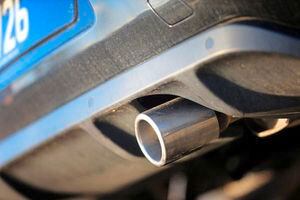P&R look at taxing vehicles by usage
ALL vehicles will be taxed based on how much they are used under proposals being

developed by Policy & Resources.
It has been investigating how to replace revenue as fuel use falls, but has rejected the idea of reintroducing annual motor tax to make up the difference.
‘The Policy & Resources Committee is recommending that, in principle, a distance charging mechanism is introduced as this will ensure that a financial contribution is made from all vehicles based on usage,’ its States report says.
‘It is proposed that further detailed research and a pilot exercise/trial is undertaken to collect comprehensive data which could be used to calculate and model an appropriate charging structure for a distance charging mechanism, together with an assessment of the effect of any potential changes in behaviour.’
It will then report back with detailed proposals.
‘It is recognised that at some future point in time, the proportion of vehicles using motor fuel will decline to such an extent that it would be appropriate to apply a distance charging mechanism for all vehicle use and cease charging an excise duty on motor fuel.
‘Until such time as the distance charging mechanism is introduced, there is likely to be a continuation of the fall in motor fuel volumes and consequentially a reduction in duty income.’
Members are being presented with a choice of what to do with fuel duty levels for the rest of this term.
They could be frozen, increased in line with inflation or increased above inflation to keep the amount of money being raised the same.
The volume of motor fuel used has declined from nearly 34 million litres in 2008 to less than 30 million litres in 2018.
In that time, the excise duty rate on motor fuel has increased by 38p per litre (approximately 130%) which substantially exceeds inflation (approximately 30%) by 29p.
The rate of excise duty on motor fuel is 70.1p per litre which is budgeted to raise income of £20.3million.





